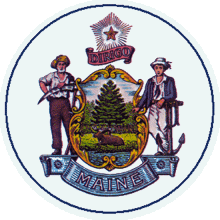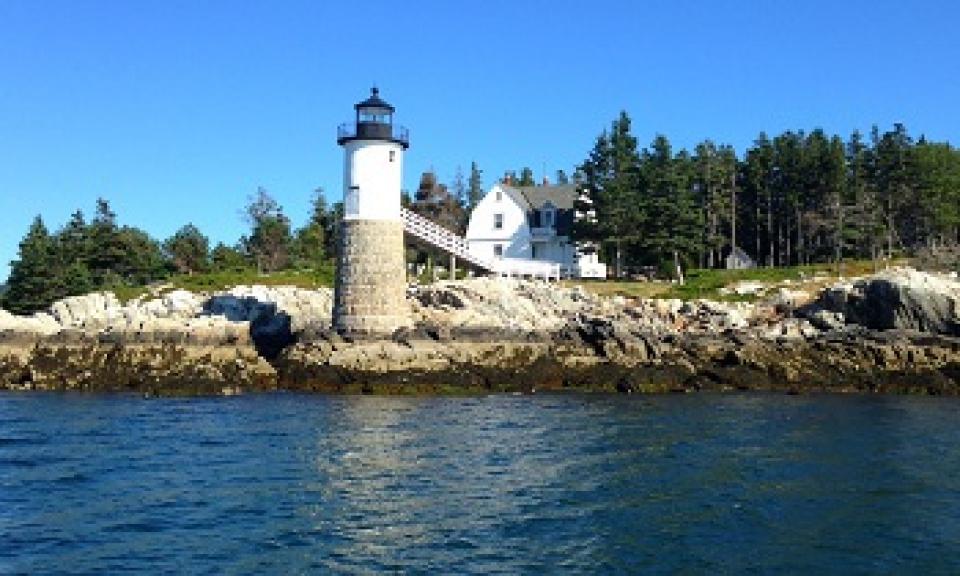
Legislative changes and funding in Maine in the last year have made it easier for local communities to consider municipal broadband options. While incumbent providers have been pushing back, local communities are pulling themselves forward.
Setting the Stage
A champion of community-driven broadband, Andrew Butcher, president of the newly created Maine Connectivity Authority (MCA), is leading the state's $250 million effort to expand broadband access in Maine, as Butcher discussed the state's new strategy in our Community Broadband Bits podcast last January. That amount includes $20 million in state funds from the Maine Jobs and Recovery Plan and $130 million in federal funds from the American Rescue Plan. The state will also be getting in excess of $100 million from the Infrastructure Investment and Jobs Act.
There has been push back from national providers who have campaigned at the local level to encourage local governments and policy makers to stop community broadband in its tracks, as we have covered here and here. And yet, despite those efforts, a number of communities across the state have started to make strides toward building publicly-owned, locally-controlled networks.
Here is a snapshot of the activity:
Western Maine: Mahoosuc Region
The Mahoosuc Community Broadband Committee is a collaboration of Woodstock, Greenwood, Bethel, Newry, and Gilead, and Albany and Milton townships in picturesque Western Maine. Working with Casco Bay Advisors on a feasibility study, the committee recommended going with a fiber optic network, choosing FirstLight as their provider partner. Based on their final report shared last spring, the total projected cost of the project is almost $10 million with FirstLight covering $2.4 million and the rest to be covered by grants and township investments. The networks would be locally owned by participating towns. Pricing and speeds offered to subscribers will range from $50 for symmetrical 30 Mbps to $300 for Gig access.
Final agreements will be made between FirstLight and the participating towns and Oxford County Commissions; they plan to seek grants from MCA.
Somerville, Washington, and Isle au Haut
In March, ConnectMaine Authority was awarded $28 million from the National Telecommunications and Information Administration’s (NTIA) Broadband Infrastructure Program to deploy broadband infrastructure to almost 12,000 unserved households across the state. In partnership with Consolidated Communications (CCI), Axiom Technologies and LCI Fiber Optic Network, the effort will create public-private partnerships to bring fiber connectivity to unserved areas in Franklin, Hancock, Knox, and Lincoln counties. The funds will also support the building of municipal networks in Somerville, Washington, and Isle au Haut with work expected to be completed in Summer 2023.
Once service is available, residents in Somerville and Washington will have access to symmetrical broadband ranging from speeds of 50 Mbps ($50/month) to Gig access ($170/month), with income-eligible households able to take advantage of a $30/month subsidy thanks to the American Connectivity Program (ACP). Rates have not yet been determined for Isle au Haut residents.

Somerville’s portion of the grant is $1.4 million, which will be paired with a $160,000 match from ConnectMaine to cover the entirety of construction costs. The work is moving forward after a referendum vote in favor of the project. In addition, the town acquired a $300,000 line of credit as required by the agreement with CCI. But that won’t require raising property taxes to fund the project.
The plan is to bring fiber to all Somerville residents, though a small portion of the project (20 homes) is being challenged by the incumbent provider, Spectrum.
Washington’s share of the NTIA grant funds is $2.6 million with a little over $291,000 from the state. That is expected to cover the costs to deploy the network, which the town will own, including the potential replacement of 30 utility poles and the construction of a central office building.
Isle au Haut, an unabridged island with a population of fewer than 25 homes and a grade school with only four students, will also finally be getting fiber service. Isle au Haut Broadband Committee member Sue Foelix told ILSR that the island is “partnering with our local power co-op to lay a fiber optic backhaul cable and to replace the aging undersea power connection in the existing underwater easement.”
Fiber cable backhaul will provide higher future-proof performance and reliability over the originally proposed microwave data link. Going with a cable, however, poses some construction challenges as the Army Corps of Engineers normally only allows work of this sort from November to April. This may have schedule impact.
Maine Highlands
Moving to the Maine Highlands and another collection of communities working under the auspices of the Maine Highlands Broadband Coalition. The coalition is a collection of communities that include Corinna, Dover-Foxcroft, Dexter, Garland, Guilford and Milo, each of whom are looking for ways to improve broadband by “seeking funding services, a provider(s), and ways to share everything it does with the community,” according to the Coalition website. Spurred by work with the Coalition, the Dover-Foxcroft Select Board formally approved using a quarter of the town’s Rescue Plan funds (more than $100,000) to build out a fiber system to the 516 unserved locations in town with an eye toward possibly seeking more funding to expand service in the years to come.
Mount Vernon
And in an area not having as much luck building better broadband, Mount Vernon residents voted down a $3.1 million appropriation for the Matrix Design Group to construct a broadband network. The cost to construct a fiber network was projected to be more than $5 million with the Matrix Design Group committed to contribute $2 million and then lease the network to the town. In light of the vote, it’s not clear what options the town will consider moving forward.
Header image of Maine Flag courtesy of Wikimedia Commons, Attribution-ShareAlike 3.0 Unported (CC BY-SA 3.0)
Inline image of the Lighthouse at Isle au Haut, Acadia National Park, Maine, courtesy of Flickr user JR P, Attribution-NonCommercial 2.0 Generic (CC BY-NC 2.0)






